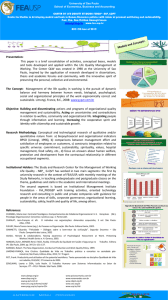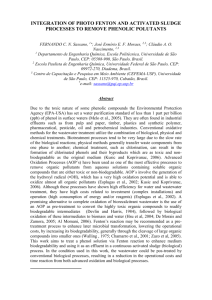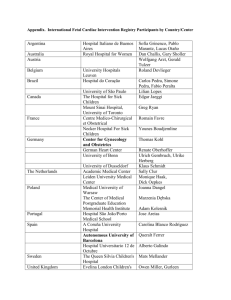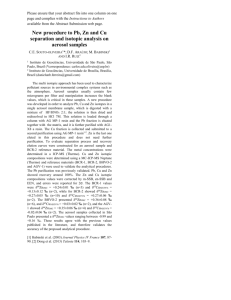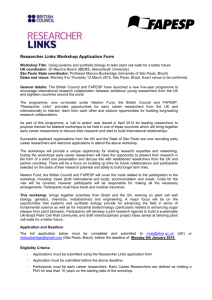Brazil - Office of the High Commissioner on Human Rights
advertisement
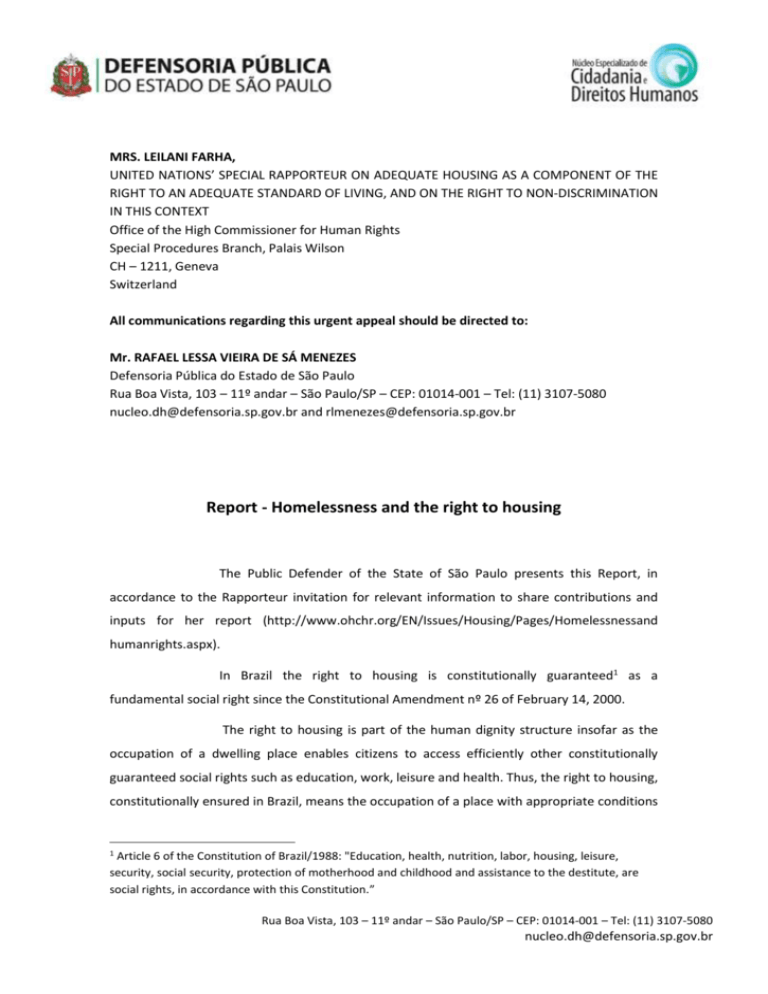
MRS. LEILANI FARHA, UNITED NATIONS’ SPECIAL RAPPORTEUR ON ADEQUATE HOUSING AS A COMPONENT OF THE RIGHT TO AN ADEQUATE STANDARD OF LIVING, AND ON THE RIGHT TO NON-DISCRIMINATION IN THIS CONTEXT Office of the High Commissioner for Human Rights Special Procedures Branch, Palais Wilson CH – 1211, Geneva Switzerland All communications regarding this urgent appeal should be directed to: Mr. RAFAEL LESSA VIEIRA DE SÁ MENEZES Defensoria Pública do Estado de São Paulo Rua Boa Vista, 103 – 11º andar – São Paulo/SP – CEP: 01014-001 – Tel: (11) 3107-5080 nucleo.dh@defensoria.sp.gov.br and rlmenezes@defensoria.sp.gov.br Report - Homelessness and the right to housing The Public Defender of the State of São Paulo presents this Report, in accordance to the Rapporteur invitation for relevant information to share contributions and inputs for her report (http://www.ohchr.org/EN/Issues/Housing/Pages/Homelessnessand humanrights.aspx). In Brazil the right to housing is constitutionally guaranteed1 as a fundamental social right since the Constitutional Amendment nº 26 of February 14, 2000. The right to housing is part of the human dignity structure insofar as the occupation of a dwelling place enables citizens to access efficiently other constitutionally guaranteed social rights such as education, work, leisure and health. Thus, the right to housing, constitutionally ensured in Brazil, means the occupation of a place with appropriate conditions 1 Article 6 of the Constitution of Brazil/1988: "Education, health, nutrition, labor, housing, leisure, security, social security, protection of motherhood and childhood and assistance to the destitute, are social rights, in accordance with this Constitution.” Rua Boa Vista, 103 – 11º andar – São Paulo/SP – CEP: 01014-001 – Tel: (11) 3107-5080 nucleo.dh@defensoria.sp.gov.br of access to water system, electricity, public transport, sewage collection, household waste disposal service, broad and easy access to public facilities such as schools and kindergartens, hospitals and health centers, leisure facilities, squares and parks. The Brazilian housing deficit is due to the logic underlying the housing investment policy decisions. Despite the large-scale production of affordable housing in recent years, largely public investments in the production of houses are subject to the interests of the real estate speculative capital. While there are high rates of housing exclusion, especially for the poorest sections of population, the rate of vacant properties is greater than the demand for housing2. Many people who do not have access to housing and have no family or friends support to dwell come to depend on the government for shelter or living on the streets. There are no consolidated data nationwide that point the demand for housing for homeless people3. The demand for housing of this particular population segment4 is inserted into the demand of the poor in general, which contributes to increase the exclusion and marginalization of those citizens, who often has no resources to afford the rent costs or financing housing. For the city of São Paulo, according to the data from the city hall, currently housing shortage of the capital city is 230 thousand houses, and 89,000 families living in precarious conditions. The current municipal government's goal is to deliver 55,000 housing 2 http://www.brasil.gov.br/governo/2010/12/numero-de-casas-vazias-supera-deficit-habitacional-dopais-indica-censo-2010 3 In fact there is any national or by states census conducted periodically that counts demographic and socioeconomic characteristics of this population segment. There are some scattered censuses, as conducted by the city of São Paulo that periodically account the homeless population. It's about this census that this document is focused. 4 "Heterogeneous population group, which has, in common, extreme poverty, broken or weakened family ties and the lack of regular conventional housing, such a way that they seek public places (streets, squares, gardens, canopies and shoals of viaducts), degraded areas (abandoned buildings, ruins, cemeteries and car bodies) as a place of shelter and sustenance for temporary contingency or permanently, and may use hostels for the night and shelter, temporary public lodge or provisional social housing". SILVA. Maria Lúcia Lopes da. Trabalho e População de Rua no Brasil. São Paulo: Cortez Editora, 2009, p. 136. Rua Boa Vista, 103 – 11º andar – São Paulo/SP – CEP: 01014-001 – Tel: (11) 3107-5080 nucleo.dh@defensoria.sp.gov.br units by the end of 2016, when the present-day municipal mandate ends, but so far only reached 15.3% of the target with the construction of just over 8000 housing units. By the regulation of the “Minha Casa Minha Vida” Federal Government Program, the rules for access to affordable housing are5: - families living in risk or unhealthy areas or that have been homeless; - Families with women responsible for the family unit; and families with disabled people. At the municipal level, after meeting the federal rules, there are the following regulation6: - social vulnerability (comprising homeless population, elderly, gay, bisexual, transsexual or transvestite, women in situations of domestic violence, black, Indian, children and adolescents living in shelters); - Precarious housing; - Live or work on the influence district or on the neighboring of public housing projects. All things considered, it is clear that some causes of homeless people's exclusion in housing access stem from the lack of dwelling unit supply in a sufficient quantity and the filters and criteria adopted to meet the demand. However, factors such as the absence of a specific public policy7 focused on this highly socially vulnerable group can be indicated as relevant for the exclusion of the access to housing of this population, especially considering that housing policies currently in force in Brazil require that beneficiaries defray with financing costs as previously mentioned. Thus, in the city of São Paulo there is no municipal policies able to contemplate the people on the streets with the “Minha Casa, Minha Vida” program, which is due in particular to the high price of land in the city and the inability of the public Power to suppress the speculative use of urban land. The last census of the homeless population in the city of São Paulo, conducted in 2015, showed 10% of growth between the years 2012 and 2015, from 14,478 to 5 Administrative rule (“Portaria”) 595/13 Ministry of Cities. 6 Resolution of the Municipal Housing Council (“Resolução do Conselho Municipal de Habitação”) 61/2014. 7 The Municipal Law No. 15,913, of 12/16/13 (Law establishing the Program for Assistance to Homeless Population integrated with the benefits of housing and health assistance), provides housing assistance for the people on the streets, however, the absence of regulation, did not make its provisions effective. Rua Boa Vista, 103 – 11º andar – São Paulo/SP – CEP: 01014-001 – Tel: (11) 3107-5080 nucleo.dh@defensoria.sp.gov.br 15,9058 (7,335 people actually on the streets and 8,570 sheltered). This represents around 0.1% of the total population of the city of São Paulo. Of the total, 82% are male and 14.6% female; 3.4% unidentified. From the Citizens counted by the census, among sheltered, almost 93% have no formal employment, surviving from precarious jobs (underemployment) or not working (25.8%); in the portion of sheltered citizens almost 41% do not receive any social benefits, retirement or pension. Regarding citizens who are effectively on the streets the situation is even more dramatic, as almost 98% have no formal job attachment (73.8% survives from underemployment and 20.7% are not working); among citizens who are on the streets 71.3% do not receive any social benefits, retirement or pension. From the brief analysis of the above data, it is observed that almost all the people on the streets do not have conditions to fulfill the requirements for credit lines as they are now in force in the country and lack the capacity to shoulder the high rent values of São Paulo. The situation seems even worse after analyzing data about homeless people individual perception of the relevant factors to overcome their current condition and get off the streets. Among the citizens sheltered in municipal public facilities relevant factors to leave the streets are: permanent housing 37%; Steady job 36%; Overcoming addiction of alcohol and drugs 8%. Among the citizens who are on the streets 30% pointed to permanent housing, 26% steady job and 14% overcoming alcohol and drug addiction. So, in any of the scenarios the existence of permanent housing is a structural factor of the strategies to overcome extreme exclusion situations. In the legal assistance of the population on the streets in the city of São Paulo, conducted by the Public Defender of the State of São Paulo, the main individual demands related to housing are seeking information and guidance on the registration for housing programs (“COHAB” – Companies of Social Housing - and "Rent Assistance Programs") 8 Some people linked to homeless citizens criticize the findings of the census; due to methodology problems the appointed number would be lower than the actual number of citizens on the streets. Despite the criticism, it is worth mentioning that even the period of greatest economic prosperity in recent years has failed to reflect the decline of the citizens in the most vulnerable situations: 8,706 in the 2000 census; 13,666 in the 2009 census and 14,478 in 2011. Rua Boa Vista, 103 – 11º andar – São Paulo/SP – CEP: 01014-001 – Tel: (11) 3107-5080 nucleo.dh@defensoria.sp.gov.br and demands for regularization of providing benefits (such as delayed payments or termination of Rent Assistance without cause), When official letters are sent requesting information, the responses of public agencies are that the citizen is registered (or will be registered) and will be contemplated with the benefit (or social rental housing unit) when there is availability of units. Most Public Defender users complain about the delay in attendance (many report being enrolled in municipal housing programs for several years) and lack of information about the enrollment in the Municipal Housing Secretariat (mainly about classification and selection criteria) to receive the benefit. In some answers, the Municipal Housing Secretariat, through the Department of Social Service - DEAS, informed that the priority of the directory is meeting the demands of "areas on risk, on intervention of urbanization works and urban renewal or displacement by court order", so, cases of citizens covered by special protection network (case of population living on the streets) would be attended by the demands set out by the Municipal Social Secretariat (CMH Resolution No. 31, 14/09/2007). According to the Municipal Housing Secretariat9: During 2014, 44,313 stakeholders were included in Demand Register for housing, totaling one million, one hundred and forty-one thousand subscribers by December 2014, of which 142 000 have updated their information and have been enabled for any selections. Programs implemented in the framework of the Municipal Housing Fund in 2014, attended 903 families in the Social Rent Assistance (...) 797 beneficiaries in the Social Partnership, checking up on the latter a decrease in demand of 85.33% compared to 2013. Of the projects developed in partnership with the Federal Government through the Ministry of Cities, were delivered 1,068 housing units from the “Minha Casa Minha Vida” Program, being of 9 Source: COMPANHIA METROPOLITANA DE HABITAÇÃO DE SÃO PAULO - COHAB-SP RELATÓRIO DA DIRETORIA 2014 http://www.cohab.sp.gov.br/arquivos/balanco_2014.pdf Rua Boa Vista, 103 – 11º andar – São Paulo/SP – CEP: 01014-001 – Tel: (11) 3107-5080 nucleo.dh@defensoria.sp.gov.br the Company's liability the eligibility of beneficiaries, monitoring the housing units drawing and key delivery. They were also delivered 100 housing units with the resources of CDHU agreement (...). About housing production In compliance with the goals of the Municipal Government (Multi-Year Plan), were published 08 Notices of Public Calling for selecting companies for the construction of units of social interest under the “Minha Casa Minha Vida” Program- with funds from the Residential Lease Fund - FAR, aiming at the production of 19,000 housing units, of which 3,440 housing units are part of Urban Operation “Água Espraiada” and 4,600 housing units to meet the removal demands of PAC's Drainage and Mobility (Federal Growth Acceleration Program). In the year 2014, in continuation of the partnership with the Federal Government for the “Minha Casa Minha Vida” Program were contracted and delivered 1,068 housing units distributed in 08 projects. And there are more than 9,881 housing units with ongoing projects in 20 projects. It was signed terms of Technical Cooperation SEHAB / COHAB - Intentions Protocols for Vila Carioca / Presidente Wilson and Vila Clarice and the “Faria Lima” Urban Operation Coliseum Agreement with 272 housing units. It was licensed 13 projects this year, especially “Boa Esperança” Park, Minas Gás/Bela Morada and Alamoíque building, transferred to CDHU. With regard to expropriations of land and buildings, the amount is 17 cases with Social Interest Decrees published and 06 filed actions of expropriation. Under the “Renova Centro” program were completed the works of the “Palacete dos Artistias” with 50 housing units already delivered. There are works in progress in the task force of “Recanto da Felicidade” with 120 units and Mario de Andrade building with 34 housing units scheduled for the second half of 2015. In a Public Hearing held on August 5, 2015, entitled "Integration and coordination of public policies for the people on the streets", an event organized by the Center of Citizenship and Human Rights of the Public Defender of the State of São Paulo, the Rua Boa Vista, 103 – 11º andar – São Paulo/SP – CEP: 01014-001 – Tel: (11) 3107-5080 nucleo.dh@defensoria.sp.gov.br Coordinator of Special Social Protection of the Municipal Social Welfare and Development Secretariat, presented census data of population on the streets and made comments about the services offered by the Social Assistance Network. She admitted that there are not enough vacancies in the safety net for every 15,000 people on the streets and there would be at least 1,500 people in municipal shelters that would be able to go to a housing assistance. This housing assistance could be temporary ("rent assistance") or permanent (the available government program is the “Minha Casa, Minha Vida”). At the same public hearing, the Municipal Housing Secretariat reported that the municipal policy to serve the demand for housing for people on the streets is still incipient in the municipality of São Paulo. According to the representative of the Municipal Housing Secretariat, there would be the intent to serve up to 2000 people of the population living on the streets. It turns out that the current regulation of "rent assistance" (Administrative rule – “Portaria” - No. 131 / SEHAB / 2015) does not consider the people on the streets as being in extreme vulnerability, so that these people may not have access to the benefit, unless those who meet the other criteria of the standard: "a) family with elderly owners or elderly in family composition, with insufficient income or without working conditions, compliance with the other criteria set forth in this Ordinance; b) family with persons with disabilities or with serious chronic diseases; c) family under the leadership of women in situations of domestic violence; d) family with minor (s) in sheltered situation. " For the rest, there is no news of consistent policies to stem the price of land and real estate speculation in the capital of São Paulo, so that there is no prospect of housing assistance for homeless people in this city. This pattern is repeated across the state and across the country, which explains the fact that the number of empty properties is greater than the number of people without a house (among these are included people on the streets). The Public Defender is demanding the City Hall to it to stablish universal service of sheltering for homeless; as well as a flow to identification and referral of people who can access provisional and permanent housing solutions (rent assistance or housing finance), observing the specific rights of different social groups, as woman, elderly, families, persons with physical disabilities or mental deficiencies. This should be the standard law execution for the whole country. Rua Boa Vista, 103 – 11º andar – São Paulo/SP – CEP: 01014-001 – Tel: (11) 3107-5080 nucleo.dh@defensoria.sp.gov.br The situation is even more serious when it comes to women on the street, especially when they are pregnant or with newborn children. Multiple vulnerabilities pervade these people and the Public Defender is aware that some of these women do not have the means for proper monitoring of her pregnancy (prenatal care), or to the upbringing of their children, who require special care in the early years of life. The situation is further aggravated in the case of crack users and other drugs, as these require even more specific attention, not made available by the government. In this context, Justice Bodies of some states, such as prosecutors, have recommended repeatedly that the judiciary be immediately informed about the birth of female children on the streets and / or crack users or other drugs, as well as the refusal realization of prenatal care. This conduct, although it is supposedly based on ideals of best child protection, has generated extremely invasive decisions, demonstrating State interference in private life, with the determination of hasty withdrawal of newborn children from their mothers10. Women on the streets and their children have the fundamental right of human dignity, which is violated when the exercise of family life and access to quality public services is blocked. The state, rather than provide adequate means for this population develops a healthy pregnancy and with proper and necessary follow-up, in all its stages, including after the birth of the child, only offers effective ways to remove the child, sending for adoption. The City of São Paulo, for example, has practically no public facilities to meet these pregnant women or women with newborn children. The institution “Amparo Maternal”11, a special reception center for pregnant women, mothers and babies, is one of the few who performs this type of service in the city, providing an accompaniment of pregnant women throughout pregnancy, as well as accommodation for mothers and their recently-born 10http://www.defensoria.sp.gov.br/dpesp/Repositorio/33/Documentos/Nota%20t%C3%A9cnica- %20diretrizes%20e%20fluxograma%20mulher%20situa%C3%A7%C3%A3o%20de%20rua.pdf 11 http://www.amparomaternal.org.br Rua Boa Vista, 103 – 11º andar – São Paulo/SP – CEP: 01014-001 – Tel: (11) 3107-5080 nucleo.dh@defensoria.sp.gov.br children, all for free. The “Rede Mãe Paulistana” 12 program is also intended to assist the pregnant woman until the second year of a baby's life, but in common public health units, which, often, have no connection with the social assistance network. However, the population in need of such actions is clearly greater than that such services can meet, causing many mothers and their babies become helpless, especially those who are on the streets. Pregnant women on the streets often come across various barriers in terms of access to public health services, whether due to difficulties of displacement, lack of information on the existence of these programs, or lack of documents or permanent address, which avoids the registration required for the delivery of such services, among other reasons. This happens mainly because there is almost no action designed specifically for this segment of the population, which is essential, since it is not possible to deny that these women and their children live in a particular social context, which requires specific attention and directly related measures to their needs and demands. The government should act to facilitate universal access to health, which is legally guaranteed13, especially with regard to these most vulnerable citizens. The situation is even more aggravated in the case of pregnant women who use crack or other drugs, as their marginalization is even more intense and the actions to distance mother and child are even more frequent. It should be understood that these mothers need a more individualized monitoring before, during and after her pregnancy, because of the reality in which they are inserted. However, it does not happen. Given the above, it’s important to conclude that the hasty removal orders between mother on the streets and her baby shortly after birth represent a clear violation of the fundamental rights of those involved, especially in this scenario where there is no provision of adequate and appropriate gestational monitoring. This monitoring should take place at all stages of the pregnancy process, including guidance and information about contraception, family planning and reproductive right concern conducting prenatal and 12 http://www.prefeitura.sp.gov.br/cidade/secretarias/saude/programas/index.php?p=5657 See, for example, article 2º of the Law n.º 8.080/90, available at: http://www.planalto.gov.br/ ccivil_03/Leis/L8080.htm 13 Rua Boa Vista, 103 – 11º andar – São Paulo/SP – CEP: 01014-001 – Tel: (11) 3107-5080 nucleo.dh@defensoria.sp.gov.br delivery of sheltering and postpartum care so that, in wishing , mothers on the streets could care for their newborn children in better condition. In addition, these services should be conducted in a dignified manner and without discrimination, while respecting the privacy and autonomy of women, and take place in various sectors, involving, for example, fronts aimed at social assistance, counseling, among others. Finally, the housing assistance to these women is even weaker than that provided in general to people on the streets, since these women have even greater difficulties to find a job than men and have lower incomes than these. They need, therefore, greater support from the Government. Thus, this Specialized Center hopes that this Rapporteurship determine Brazil to make effective the right to housing for the people on the streets, especially for pregnant women and newborn children, through the repression of speculative use of urban land and the creation, in all municipalities, of a flow of care involving sheltering, temporary housing assistance and permanent housing assistance. São Paulo, November 13, 2015 Rafael Lessa Vieira De Sa Menezes Public Defender Davi Quintanilha de Azevedo Public Defender Whilerson Luiz Sociologist Agent Renata Palmeiro Pereira Trainee Rua Boa Vista, 103 – 11º andar – São Paulo/SP – CEP: 01014-001 – Tel: (11) 3107-5080 nucleo.dh@defensoria.sp.gov.br

